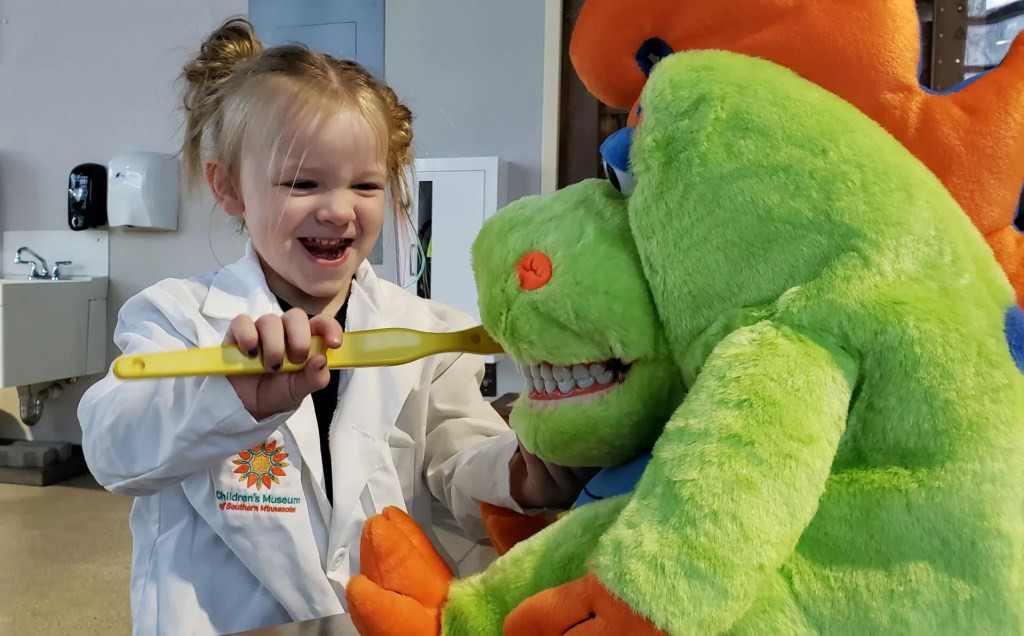By Erin Westfall, D.O., family medicine physician, Mayo Clinic Health System
Dental infections are one of the most common infections in children. The health of your children’s teeth affects their overall health. Though dentistry has come a long way with the latest dental advancements, you still have to play an active role in your child’s dental care.

Why dental health matters in children
Dental caries — otherwise known as tooth decay or cavities — affect many children and adults. Cavities in children’s teeth can make it hard for them to eat, speak and sleep. Fortunately, dental disease is nearly 100% preventable through good dental health habits and routine checkups.
Set your children up for a lifetime of healthy dental habits with the following steps:
- Brush teeth twice a day with fluoride toothpaste.
- Have regular visits with a dentist.
- Eat healthy foods and avoid frequent snacking.
Start dental health early
Starting at 6 months old, formula should be mixed with fluoride water to make bottles. Nighttime eating increases the risk of tooth decay due to lactose, which is milk sugar. For babies fed breastmilk, talk with your health care team or dentist about the need for fluoride supplementation.
Every child should have an oral health exam by age 1 and have regular dental visits every three to six months. Fluoride varnish should be applied to your child’s teeth every three to six months and often can be applied at a well-child visit by the health care team. This topical fluoride can prevent and even reverse early cavities. Fluoride does not replace good teeth care habits.

Brushing children’s teeth
Seeing your children get their first tooth is an exciting time. And it’s the prompting to begin cleaning the teeth and gums using soft brushes and fluoridated toothpaste.
Use a grain of rice-sized amount of toothpaste for babies and young children. For children 3 and older, use a pea-sized amount. Flossing helps to remove food from between teeth.

Children need supervision with brushing until at least age 7 or 8, or halfway through grade school. Parents should always supervise. You can stop supervision when you think your child is doing as good of a job as you would. Brushing two times a day is usually enough, and children should begin flossing as soon as their dentist recommends it.
Children watch their parents and mimic those actions. When children see their parents making time to care for their teeth, they want to do the same.
Eat a diet that promotes healthy teeth
A balanced diet helps children grow and stay healthy. Eating foods rich in calcium and vitamin D helps build strong bones and teeth.
Any food or drinks with sugar increase your child’s risk for cavities. Enjoy the natural sweetness of fruit — that’s all they need for sweets. Avoid soda pop, sugary juice, and frequent snacking.
Talk to your children’s health care team or dentist if you see spots, stains or other discoloration on the teeth, or if they are experiencing dental pain.
Print and share this infographic for more information on keeping children’s teeth healthy.


